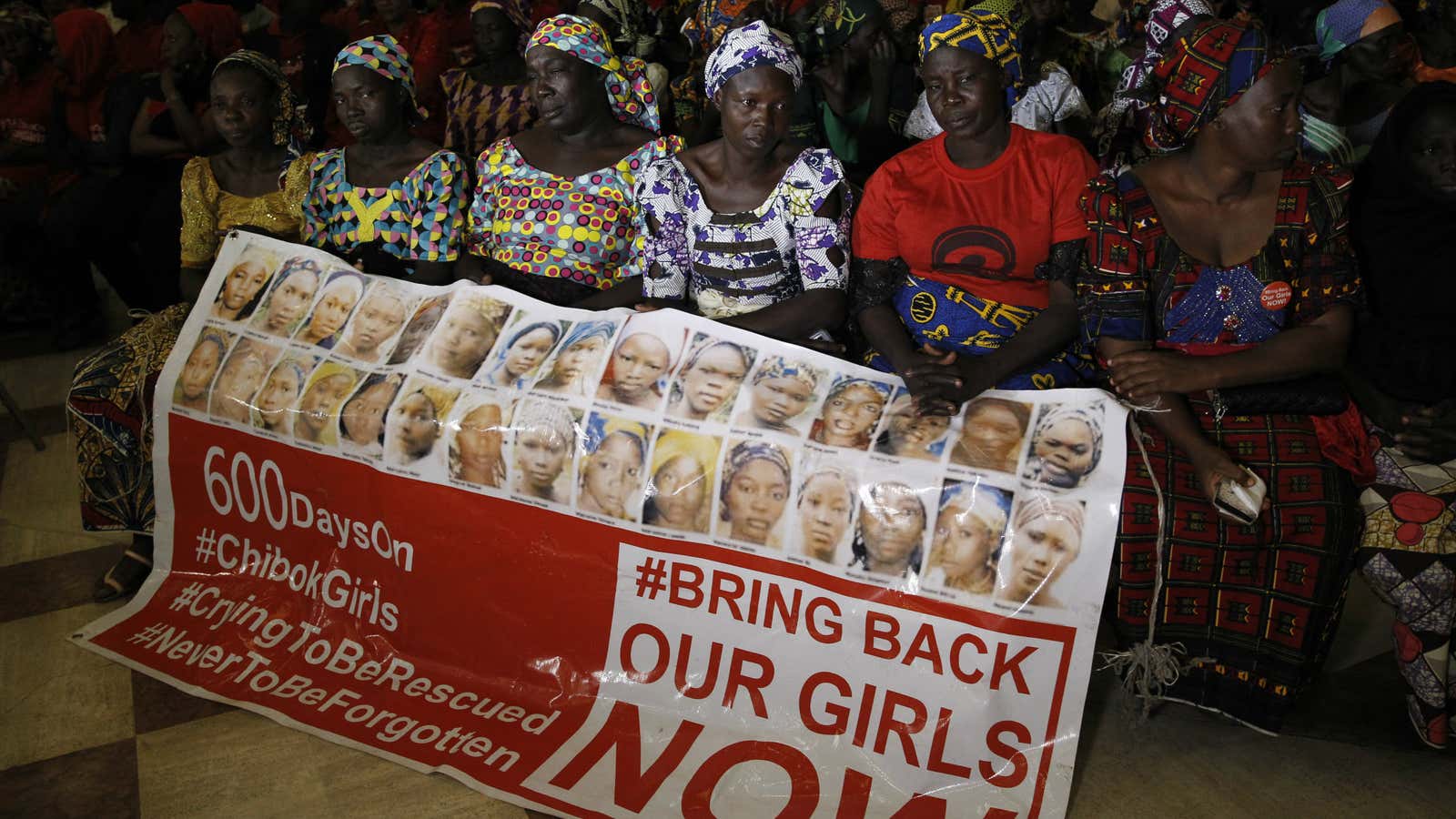As part of efforts to help the reintegration of Boko Haram’s victims in Nigeria’s north-east, US lawmakers are discussing a bill which will allow its government use recovered Nigerian funds illegally stashed in American accounts as aid.
Between 1993 and 1998, General Sani Abacha ruled as military dictator of Nigeria and in that time is believed to have looted up to $5 billion and placed the money in foreign accounts. In 2014, the US Department of Justice forfeited $480 million in corruption proceeds kept in banks around the world by Abacha allowing it to be “used for the benefit of the Nigerian people”. Recovered through the Kleptocracy Asset Recovery Initiative, it remains the “largest kleptocracy forfeiture obtained through kleptocracy action.”
The bill, sponsored by Sheila Jackson Lee, a congresswoman from Texas, wants to use the money as a Victims of the Terror Protection Fund for families hurt by Boko Haram. Citing the power of the US Attorney General to dispose of recovered proceeds of corruption-related assets as she sees fit “where resources are badly needed for reconstruction and the rehabilitation of societies under new governments”, the bill resolves that “the victims of Boko Haram should be provided the dire humanitarian assistance.” It also calls for the provision of “military technical assistance be provided to Nigeria and its neighbors.”
While it might seem seen as controversial the US Congress appears to be dictating how Nigeria’s stolen funds should be used rather than leave to the Nigerian government, it reflects the country’s general lack of credibility in handling recovered proceeds of corruption. There has been a lack of clarity over how parts of the Abacha loot recovered from other countries has been spent.
Similar sentiments led David Cameron, prime minister of Britain to describe Nigeria as ‘fantastically corrupt’ last week. While agreeing that Cameron was right to tag the country corrupt, Muhammadu Buhari, Nigeria’s president, also cast aspersions on Britain’s role in enabling corruption.
While still a way from being voted into law, sponsors of the bill say it can be modeled after the case 0f Equatorial Guinea “where prior kleptocracy initiatives have been created to benefit communities and victims in need of support.”
